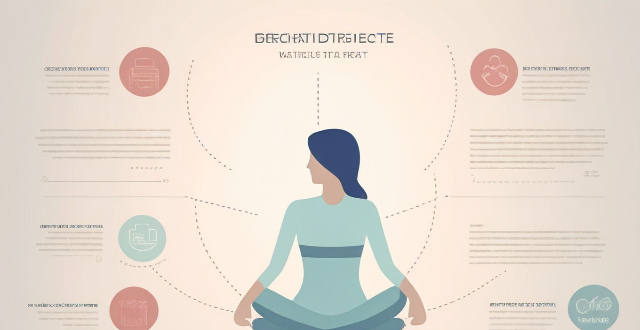The article discusses the impact of pregnancy and motherhood on women's mental health, highlighting both positive and negative effects. Positive effects include increased responsibility, improved social support, and enhanced emotional connection with the child. Negative effects may involve postpartum depression, anxiety disorders, and trauma-related disorders. Coping strategies such as seeking professional help, building a support network, and practicing self-care are recommended to manage any mental health challenges that arise during this period.

Effects of Pregnancy and Motherhood on Women's Mental Health
Introduction
Pregnancy and motherhood can have significant effects on women's mental health. This article will explore the various ways in which pregnancy and motherhood can impact a woman's mental well-being, including both positive and negative effects.
Positive Effects
Increased Responsibility
Becoming a mother brings with it an increased sense of responsibility, which can lead to feelings of pride and accomplishment. Women who successfully navigate the challenges of pregnancy and motherhood may experience a boost in self-esteem and confidence.
Improved Social Support
Pregnancy and motherhood often lead to increased social support from family, friends, and community members. This support can help alleviate stress and provide emotional comfort during challenging times.
Enhanced Emotional Connection
The bond between a mother and her child is one of the strongest emotional connections a person can experience. This connection can bring immense joy and fulfillment, as well as a sense of purpose and meaning in life.
Negative Effects
Postpartum Depression
Postpartum depression is a common mental health issue that affects many new mothers. Symptoms include feelings of sadness, hopelessness, fatigue, and difficulty bonding with the baby. It is important for women to seek professional help if they are experiencing these symptoms.
Anxiety Disorders
Anxiety disorders, such as postpartum anxiety or generalized anxiety disorder, can also arise during pregnancy or after giving birth. These disorders can cause excessive worry, fear, and nervousness, which can interfere with daily activities and relationships.
Trauma-Related Disorders
Some women may experience trauma-related disorders, such as post-traumatic stress disorder (PTSD), as a result of difficult pregnancies or childbirth experiences. Symptoms may include flashbacks, nightmares, and avoidance behaviors related to the traumatic event.
Coping Strategies
Seeking Professional Help
It is essential for women to seek professional help if they are struggling with mental health issues during pregnancy or after giving birth. Therapists, counselors, and other mental health professionals can provide support and guidance to help women manage their symptoms and improve their overall well-being.
Building a Support Network
Building a strong support network of family, friends, and community members can provide emotional comfort and practical assistance during challenging times. Women should not hesitate to ask for help when they need it.
Self-Care Practices
Engaging in self-care practices, such as exercise, meditation, or hobbies, can help reduce stress and improve overall mental health. Women should prioritize their own well-being by taking time for themselves and engaging in activities that bring them joy and relaxation.
In conclusion, pregnancy and motherhood can have both positive and negative effects on women's mental health. By seeking professional help, building a support network, and practicing self-care, women can manage any mental health challenges that arise and maintain their overall well-being throughout this exciting but potentially challenging time in their lives.